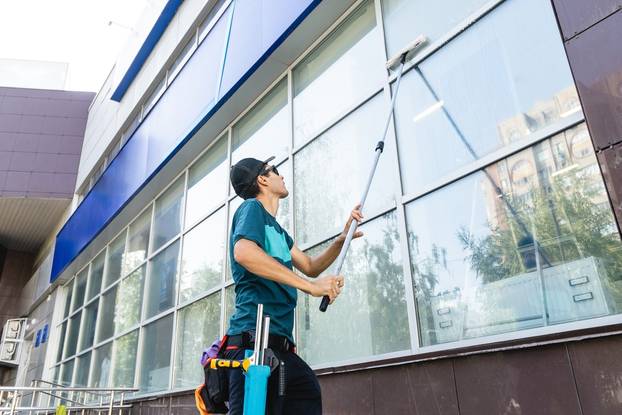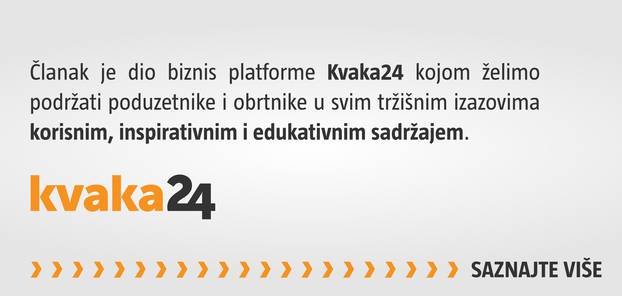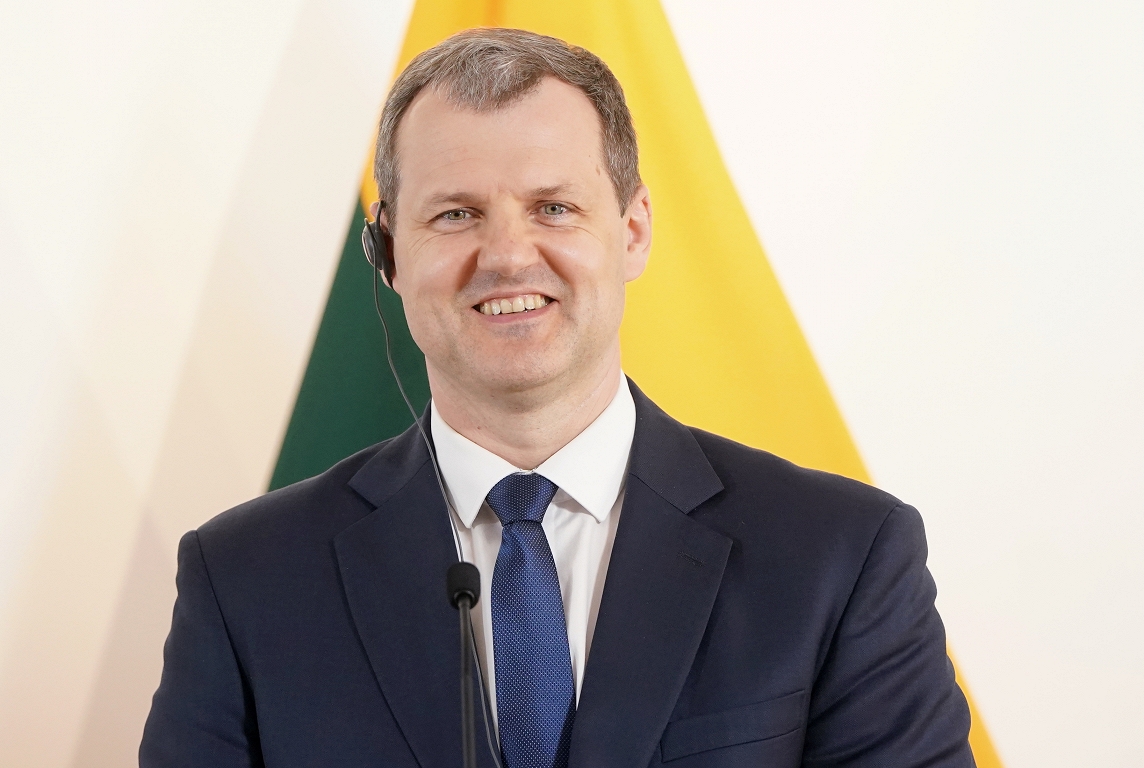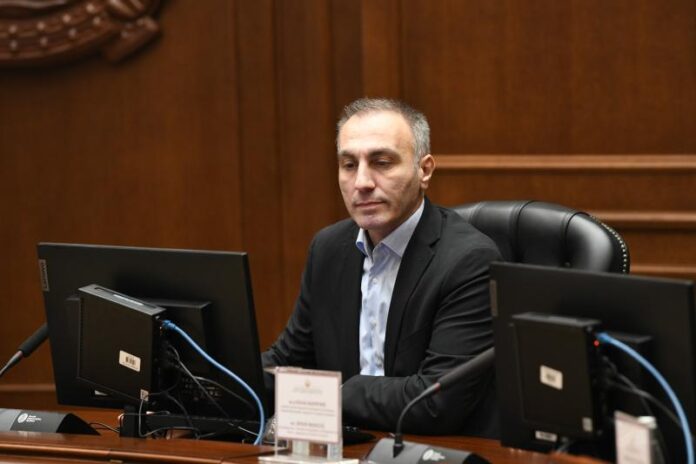Most foreign workers in Croatia are retrained for the job they do

The needs for foreign workers in Croatia are growing year after year. Construction, tourism, industry, traffic, trade … There is almost no industry that does not fill in « emptiness » to foreign employees. Only in 2024. Foreigners were issued 206,529 Labor Permissionsand most of them were assigned to the citizens of Bosnia and Herzegovina (38,100), Nepal (35,635), Serbia (27,988) and India (20.502). The list also features Macedonians (13,855), Filipinci (14.680), Bangladesani (13,630), Kosovari (8139), Uzbekistani (6959) and Egyptians (6672).
However, the information that particularly caught our eye is the one about the structure of education. Specifically, 50% of foreign workers have a high school, 35% undergraduate studyand 6% only elementary school, according to the Institute for Migration Research. We can conclude that most of them do a job for which they are retrained, and the causes are hidden in linguistic barriers and system (un) recognition of qualifications, Prof.dr.sc. tells us. Mirela AlpezaDirector of CEPOR and a full professor at the Faculty of Economics in Osijek.
It is also interesting that 18% of people who immigrated to Croatia and come from third countries are self -employed. Which means that in Croatia, the proportion of self -employed is higher among immigrants than among the domicile population (11%). Moreover, it is estimated that in 2023 in the EU was around 3.2 million self -employed immigrantsof which about 30,000 in Croatia, among which about 30% of self -employed immigrants employs other employees.
Dr. sc. Alpeza says so far studies indicate a significant economic contribution of migrants. In addition to the development of entrepreneurial activities, migrants contribute to reducing information barriers, strengthening trade and investment flows between countries of origin and destination countries, as well as increasing direct foreign investments from the country of destination to countries of origin.
– It has been proven that immigrant entrepreneurs contribute to creating new jobsthey are more inclined to take risks and are often more innovative and more enterprising than local entrepreneurs – says the professor.
Croatia does not have a clear strategy
– Croatia is only in the initial phase of the development of integrated and proactive policies according to foreign workforce and migrants with entrepreneurial potential – adds our interlocutor.
Although there has been a significant increase in foreign workers in the last few years, There is no clear strategy The involvement of migrants in the long -term economic development and innovation potential of the country.
For example, Germany, the Netherlands, Sweden and France apply integrated approaches, which include recognition of foreign qualifications and competencesAccess to Financing and Counseling Programs for Starting Companies, Language and Integrating Courses Adapted to Entrepreneurial Context, Entrepreneurial Incubators Specialized in Migrants (eg The Human Safety Net in Italy), stimulating visas for entrepreneurs from third countries, etc.
– Croatia could also apply some of these examples of good practice. For example, to establish targeted migrants entrepreneurial programs that include mentoring, microfinance and support in registration of business, and to create a legal framework for a « start-up » visa, which would allow the arrival of high-educational migrants with business ideas. Furthermore, he states, a systematic monitoring and research of migration flows and the effects of entrepreneurial activities of migrants would create assumptions for the design of policies based on data related to migrant entrepreneurship, Alpeza believes.
Discriminatory position of migrant entrepreneurs
Foreigners from third countries who want to start business in Croatia face a number of obstacles that significantly make their economic integration significantly. Although the legislative frame formally enables the establishment of a company and foreign nationals, there are in practice many structural, administrative and information challenges who slow down or discourage the entrepreneurial activity of migrants.
“The biggest obstacle represent Discriminating conditions for registration of a business entity For foreigners from third countries, since they have to invest at least 27,000 euros in minimal capital, to employ at least three Croatian citizen on an indefinite working time with full -time working hours and minimum salary in the height of gross salary in the Republic of Croatia, and must formally be employed in their own company with a minimum wage for a director, which should not be less than 1.5 average gross salary in the Republic of Croatia. This means that a migrant entrepreneur must have initial capital and annual financial capacity of more than 80,000 euros, which is a significant obstacle to domestic entrepreneurs – says Alpeza.
In addition, foreigners often face long -term, confusing and under -digitized companies registration procedures, obtaining permits and regulating the residence status associated with entrepreneurial activity. Banks often set up High requests to open an account or a loan approval with migrants. Migrants generally do not have access to business networks, advisers and accelerators, who are key to successful business development.
Professor especially apostrophic Ukrainian entrepreneurswho are in Croatia under a temporary protection that allows them to work without the need for additional permits, as if they are citizens of EU Member States. The provision is applied until March 4, 2026, after which it will have to regulate its status through standard procedures for third -country nationals.
– Many of them, unfortunately, will not be able to meet the aforementioned criteria because they lead mostly micro -bobs, often in service activities, and have failed to develop business in these several years to this scale. If there is no favorable solution for their stay in Croatia, they will be forced to leave Croatia and find a way to continue their entrepreneurial venture in another country that will provide a better entrepreneurial environment – warns Alpeza.
Integration prerequisite for success
Integration is a key prerequisite for the success of the migrant entrepreneur. The establishment of stable social and business relationships directly affects their chances of developing sustainable business, access to markets, resources and information.
– To make integration effective, Targeted integration programs need to be developed For immigrant entrepreneurs, involve them in local business networks, connect with domestic entrepreneurs through joint projects, events and mentorships, provide access to advisory and financial services, for example, through specialized support points (eg One-Stop-Shop), in several languages and adapted to the specifics of migrant experience, to recognize and promote successful entrepreneurs. Social perceptions are changing and others to activate – says the professor.
Poland as an example of good practice
Poland, especially through research and initiatives led by prof. Jan Brzozowski from the Jagelon University of Krakov, is one of the examples of good practice in Central and Eastern Europe when it comes to understanding and encouraging entrepreneurship among migrants.
– CEO cooperation with prof. Fastzowski provides valuable insights that can be transferred to the Croatian context. Fastzowski emphasizes that migrants, especially from Ukraine and other Eastern European countries, often show above average entrepreneurial aspirations – says Alpeza.
In Poland, « Migrants Incubator » developed, often funded by EU funds, which allow education, support in the development of the business plan and easier access to financing.
The cities in Croatia could also establish One-Stop-Stop-SHOP desk for immigrant entrepreneurs and provide special places in local incubators for migrant entrepreneurs, modeled on examples from Poland. Polish experiences show that it is possible to use EU funds for financing dedicated education, counseling and support for migrant entrepreneurship – an opportunity that has not yet been systematically used in Croatia, Professor Alpeza concludes.
Dr. sc. Mirela Alpeza is the director of CEPOR and a full professor at the Faculty of Economics in Osijek, where she has been teaching and investigating entrepreneurship for 20 years. She is a member of the Board of Directors of the Senor Senor Entrepreneurs Club, which implements the mentoring program for entrepreneurs in cooperation with the Association of Small and Medium Entrepreneurs (HUP).













:format(webp)/s3/static.nrc.nl/wp-content/uploads/2025/06/05082658/data133175350-349c0f.jpg)
